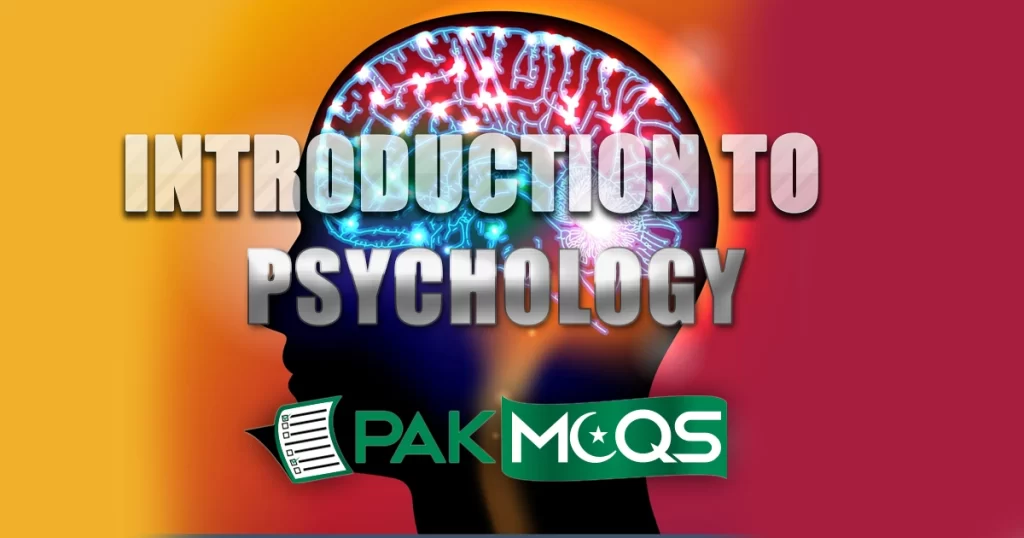A. Developmental processes
B. Biological bases of behaviour
C. Social basesof behaviour
D. Cognitive and affective processes
E. psychologists can study all of these domains
Introduction to Psychology
Introduction to Psychology Mcqs for Preparation – These Multiple Choice Questions are important for Lecturer Psychology, Clinical psychologist, Counselling psychologist, Educational psychologist and Forensic psychologist Jobs tests. Psychology Mcqs questions are very important for all type of exams conducted by Fpsc, Nts, Kppsc, Ppsc, Spsc, Bpsc, Ots, Uts, Pts, Cts, Ats, etea and other testing agencies of Pakistan.
| PSYCHOLOGY MCQS |
|---|
A. Behaviorism
B. Psychoanalysis
C. Structuralism
D. Functionalism
A. Speculation and common sense
B. Generalisation and common sense
C. Hindsight and experimentation
D. Controlled Measurement and experimentation
A. Both the brain and the computer consist of millions components yet the behaviour of compute can be understood by studying the programs that run them.
B. A useful account of human behaviour is considered possible by using terms abstract enough to transcend to transcend the operation of the brain’s approximately 180 billion nerve cells.
C. From the human information-processing perspective, information delivered to the senses is translated into a cognitive code.
D. Two types of processing which is conscious, and controlled processing which in unconscious.
A. Connectionists can study the brain as it naturally occurs in real life situations
B. Connectionists assume cognitive systems function as a whole versus by single components
C. Connectionists support the idea of a centeral processor of control unit
D. Connectionists assume parallel versus serial processing of information
E. b and d
A. Psychoanalysis
B. Behaviorism
C. Human information-processing
D. Gestalt psychology
A. Piaget argued that a child understands an object by acting on in either physically or mentally’ and thereby constructs knowledge.
B. Infants develop cognitive structures or schemes, which are organized particular way of interacting with the environment.
C. Cognitive structures of younger children, under the age of 7 reflect abstract mental operations.
D. The Cognitive operations of alder children allow them to realized that conserved despite changes in appearance.
A. He proposed an important theory about how memory works
B. He founded an influential school of psychology
C. His work stood the test of time as his findings were later replicated by others and many remain valid today.
D. However, he was unable to convert (or ‘operationalize’) unobserbales mental processes into observable behaviour
A. Each of them worked independently
B. Each of them were pioneers in the fields of psychology
C. Each of them founded a formal psychology laboratory
D. Each of them developed novel observational methods to study how the mind works
E. a, b, and d
A. Sigmud Freud
B. Francis Galton
C. Jean Piaget
D. B.F. Skinner


